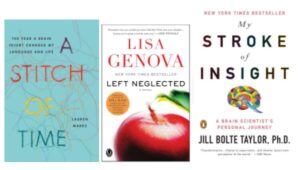Understanding Aphasia
“It’s on the tip of my tongue”
“I’m at a loss for words”
“I’m speechless “
Phrases like these were created because so many of us know the familiar frustration of being temporarily unable to say what we mean. For more than 2 million people in the United States, this experience is not a temporary difficulty, but a persistent disorder called Aphasia. In honor of Aphasia Awareness Month, I’d like to share a bit about individuals who have aphasia after a traumatic brain injury, brain aneurysm, or stroke.
Aphasia is a loss of language, not a loss of intelligence. Depending on the type of aphasia, it can impact a person’s ability to speak and write (broadly defined as expressive aphasia) as well as read and understand (broadly defined as receptive aphasia). Because aphasia can impact various aspects of language, it is the job of the speech therapist to identify a person’s strengths and use them to improve skills that are difficult. For example, a person with aphasia may have difficulty naming an item, but have strong reading skills. As a result, labeling items in the clinic and teaching family or friends to do the same in the home home may help that person communicate wants, needs, and preferences;
Below are some messages from people with aphasia, taken from the Constant Therapy, a computer application designed to provide cognitive-communicative exercises to individuals with various neurological conditions:
Speak slowly. I need more time to understand.
I am not a child. Just because I have a hard time talking doesn’t mean I don’t know what I want to say.
Be patient. I may need to take a break from our conversation and process. Don’t do or say it for me. It is empowering for me to figure it out. I am not anti-social. Crowds and large noises are hard for me. I still have a long way to go in my rehabilitation. I will get there.
Pictured below are three of my favorite first hand accounts of aphasia. They are informative yet digestible resources for caregivers, family members, and friends of people living with this disorder.

